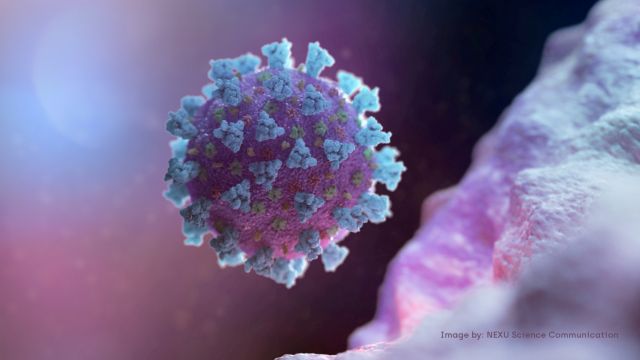Getting sick with coronavirus and not knowing is quite common. Mild or no symptoms often accompany the disease with the result that one may be positive and not know it. However, there is the possibility of realizing that we are sick if we exhibit mild symptoms as long as we distinguish them.
National and Kapodistrian University of Athens presents in its article the suspicious symptoms that must motivate us to be examined in order to understand if we are sick.
This article was edited by the Doctors of the Therapeutic Clinic of the Medical School of the National and Kapodistrian University of Athens, Stavroula Paschou (Assistant Professor of Endocrinology), Theodora Psaltopoulou (Professor of Therapeutic-Epidemiology-Preventive Medicine).
Here are some indications that you may be one of these people:
1) A “bad” cold. It is not uncommon to have a cold during the winter. But if you had one in late 2019 or early 2020, chances are your cold was actually COVID-19. One difference is that COVID-19 can cause spots for 2 weeks or more, while the common cold usually lasts only a few days. And unlike the common cold, COVID-19 is usually accompanied by fever and respiratory symptoms.
2) Shortness of breath. Shortness of breath is not usually a symptom of the common cold or flu, but is a feature of COVID-19. It is often reminiscent of shortness of breath that occurs in panic attacks, but of course lasts much longer and is accompanied by other signs or symptoms.
3) Persistent cough. If you had a dry cough that took time to go away, you could have passed COVID-19. The cough usually starts mildly, but gets worse over the next 5-7 days and can last even longer.
Unjustified fatigue
4) Red, watery eyes. Throughout the pandemic we advise to wash our hands often and to avoid touching our face. One reason for this is that COVID-19 can also affect our eyes. So if you have conjunctivitis (red or pink eyes), tearing or blurred vision, it may be caused by the coronavirus.
5) Pulse sensation or chest pain. COVID-19 can also affect our heart. So if you felt it was beating fast or fluttering or if you had a tightness in your chest you may have had a coronavirus. Such symptoms may occur even for 2 weeks in mild cases or for 6 weeks in more severe cases.
6) Feeling of unjustified fatigue. If you had extreme fatigue that did not improve with good sleep, it could be a sign of a coronavirus. This feeling may return days or sometimes weeks later, depending on the individual.
7) Loss of smell or taste. If your food and drink seemed to taste different than usual or if they did not taste good or if you could not smell well for a few weeks, you could be infected with the coronavirus. Up to 80% of people who are positive have this problem.
People who become ill usually show high levels of antibodies to the coronavirus. Of course, the time of their presence in the body varies from person to person. Also, if you have been vaccinated properly, we may not always know where they came from.




